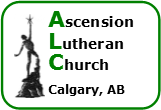Second Sunday After Pentecost
Luke 8:26-39
[26] Then they arrived at the country of the Gerasenes, which is opposite Galilee. [27] As he stepped out on land, a man of the city who had demons met him. For a long time he had worn no clothes, and he did not live in a house but in the tombs. [28] When he saw Jesus, he fell down before him and shouted at the top of his voice, “What have you to do with me, Jesus, Son of the Most High God? I beg you, do not torment me”-- [29] for Jesus had commanded the unclean spirit to come out of the man. (For many times it had seized him; he was kept under guard and bound with chains and shackles, but he would break the bonds and be driven by the demon into the wilds.) [30] Jesus then asked him, “What is your name?” He said, “Legion”; for many demons had entered him. [31] They begged him not to order them to go back into the abyss. [32] Now there on the hillside a large herd of swine was feeding; and the demons begged Jesus to let them enter these. So he gave them permission. [33] Then the demons came out of the man and entered the swine, and the herd rushed down the steep bank into the lake and was drowned. [34] When the swineherds saw what had happened, they ran off and told it in the city and in the country. [35] Then people came out to see what had happened, and when they came to Jesus, they found the man from whom the demons had gone sitting at the feet of Jesus, clothed and in his right mind. And they were afraid. [36] Those who had seen it told them how the one who had been possessed by demons had been healed. [37] Then all the people of the surrounding country of the Gerasenes asked Jesus to leave them; for they were seized with great fear. So he got into the boat and returned. [38] The man from whom the demons had gone begged that he might be with him; but Jesus sent him away, saying, [39] “Return to your home, and declare how much God has done for you.” So he went away, proclaiming throughout the city how much Jesus had done for him.
A man tortured by a legion of demons for a long time. He doesn’t live in a house but in the midst of death, in the tombs outside the city. Everyone was afraid of him, keeping him under guard and bound in shackles and chains, until the demonic strength possessing him broke those bonds and drove him into the wilderness.
But one day Jesus shows up and casts the demons out in dramatic fashion—sending them into a nearby herd of pigs (at the demons’ request) which then hurl themselves off a steep bank and into the lake where they drown.
When things settle down, the nearby residents come out to see what has happened and they find the formerly demon-possessed man sitting at Jesus’ feet, clothed and in his right mind.
Such a drastic change, a man possessed by evil transformed by the power of God and filled with peace should be cause for celebration and thanksgiving. This man who once was a terrifying danger to himself and others is now eager to go with Jesus to love both his God and neighbor.
But their reaction is the exact opposite. They see the man at Jesus’ feet and are afraid. Seized with fear they ask Jesus to leave. What’s there to be afraid of? Yes, Jesus exercised great power, but not for his own benefit rather for the sake of saving another.
It appears the crowd is afraid of change—they are fearful of something different they can’t understand even if it is done in love.
When faced with uncomfortable change and undesirable alternatives, an old saying is often employed “better the devil you know”. Unfortunately, the saying overlooks the obvious point that the “devil you know” is still a devil.
But before any of us are too quick to criticize the citizens who asked Jesus to leave, how often have we done the same thing? Faced with the possibility of God leading us to change, to something unknown, different and unfamiliar, we politely decline and invite him to take this offer elsewhere.
Jesus promises to meet us where we are, as we are, but never with the intention of leaving us there. Every encounter with Christ carries the possibility of change—sometimes large, sometimes infinitesimal, but change nonetheless, as we are transformed into the likeness of our Lord.
It’s never a question of if we will change, but how and who will be the author of that change. This gospel text shows a man who willingly submits to the power of God to change his life, even setting aside his desire to go with Jesus and instead obey his Lord’s command to return home and tell how much God had done. It also shows a crowd who rejected the power and peace of God out of fear, and changed themselves by following their fears, allowing that to become a bit more entrenched in their lives.
God grant that regardless of whatever uncertainty we encounter, His love rather than our fears would guide and shape our lives.
